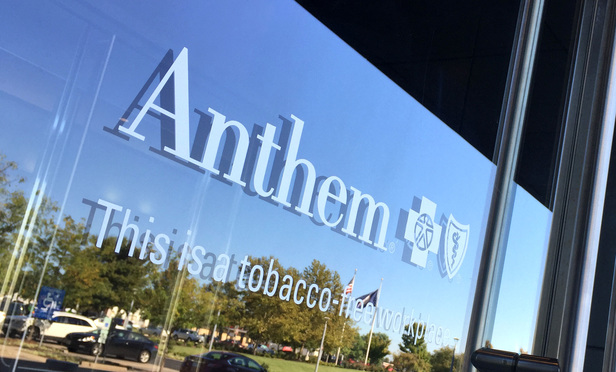Writing for a divided three-judge panel, Judge Judith Rogers upheld U.S. District Judge Amy Berman Jackson’s decision to enjoin the merger. The trial court, Rogers wrote, “did not abuse its discretion” by rejecting the merger “based on Anthem’s failure to show the kind of extraordinary efficiencies necessary to offset the conceded anticompetitive effect of the merger in the fourteen Anthem states: the loss of Cigna, an innovative competitor in a highly concentrated market.”
Rogers was joined in the decision by Judge Patricia Millett. In a concurring opinion, Millett struck down Anthem’s efficiencies argument in harsher terms.
“Paying less to get less is not an efficiency; it is evidence of the anticompetitive consequences of reducing competition and eliminating an innovative competitor in a highly concentrated market,” Millett wrote.
In a dissenting opinion, Judge Brett Kavanaugh said the Anthem-Cigna deal should be saved for the cost savings it would create for consumers.
“The merged Anthem-Cigna would be a more powerful purchasing agent than Anthem and Cigna operating independently,” Kavanaugh wrote. “The merged Anthem-Cigna would therefore be able to negotiate lower provider rates on behalf of its employer-customers. Those lower provider rates would mean cost savings that would be passed through directly to the employer-customers.”
The Justice Department in a statement said it was “pleased with the appellate court’s decision. It upholds an injunction against the merger of two of the country’s largest health insurers, which not only would have led to higher prices but also slowed innovation and harmed consumers by weakening value-based offerings aimed at lowering medical costs.”
Eric Schneiderman, the New York attorney general, said in a statement Friday:
Today’s decision is a win for consumers in New York and across the country. We are very pleased that the Court of Appeals agreed with the District Court’s finding that this merger would violate antitrust laws by substantially lessening competition in commercial health insurance markets, likely leading to increased health insurance premiums and reduced quality and innovation.
Several trade groups had urged the D.C. Circuit to keep the injunction in place against the Anthem-Cigna deal. Along with the Justice Department, the American Hospital Association argued that the combination of the two insurers would reduce the market’s incentive to innovate.
The Justice Department sued in July to defeat not only the Anthem-Cigna deal but also Aetna Inc.’s proposed $37 billion purchase of Humana Corp. The government alleged the two acquisitions would amount to an “unprecedented consolidation” in the health insurance industry. In the case of Anthem and Cigna, the DOJ argued that the deal would hurt competition for consumers who receive health insurance through the Affordable Care Act’s public exchanges, along with millions of others who receive insurance from their employers.
Aetna and Humana abandoned their deal after a Washington judge blocked it in January.
But Anthem has pushed forward, even as it faces a lawsuit from Cigna in the Delaware Court of Chancery seeking a $1.85 billion termination fee and an additional $13 billion in damages. A preliminary injunction hearing is scheduled for May 8.
The Anthem-Cigna deal had been dogged by discord between the two supposed merger partners. In her decision to strike down the deal, Jackson described the tension between the two companies as the “elephant in the room,” noting that a lawyer for Cigna had cross-examined a defense expert during the district court trial and undermined Anthem’s forecasts for future savings from the acquisition.
Rogers, in a footnote, described Cigna as only a “reluctant supporter of the merger.”
One looming question on the horizon will be how the Trump administration’s Justice Department responds to the ongoing “merger wave” in corporate America.
Trump’s pick to lead the Antitrust Division, Makan Delrahim, has suggested that big isn’t necessarily bad. Delrahim, a former Brownstein Hyatt Farber Schreck lobbyist, had advocated for Anthem’s push to merge with Cigna.




